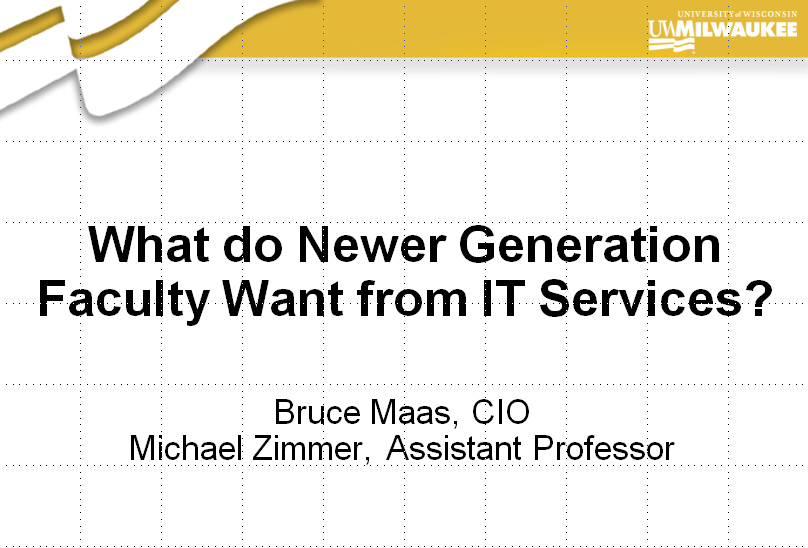I’ll post the slides from today’s IT Forum when they’re available, but in the meantime here’s what I thought was the most important news from Jim Franceschelli’s talk on “Desktops of the Future”:
- Windows 7 will be rolling out around November, since Windows XP Extended Support is ending. IR computers will get the rollout first (probably this month).
- IR will be setting up standard user accounts on University-owned computers. These user accounts will limit what applications users can install, in order to make the campus more secure. MOST applications will be blocked, but some whitelisted applications (e.g., iTunes) will be allowed. This has me a little concerned – it seems like an area where we’ll need a lot of communication between IR and faculty to make sure that faculty can download and install the applications they need on their desktops.
- IR will also soon be rolling out Active Directory, a tool that will sync your Windows account – so that you’ll be able to access to mapped drives, etc from any computer on campus.
- IR is encouraging everyone to delete any personally identifiable information (PII) from their computers. A tool called Identity Finder will be rolled out soon that will try to locate what it thinks is PII on your desktop and then give you the option to delete or encrypt it.
- Remote desktop assistance will be available soon – this will allow IR staff members to remotely connect to your system, making repairs faster and making the TSC more efficient.
- The University is heading towards a virtual desktop environment (where all data is stored on Royal Drive and access to your “desktop” is via a thin client on a terminal). IR already has the thin client and will be testing it later this month. The current plan is to set up a prototype lab in January to be tested by users in Spring 2011.

